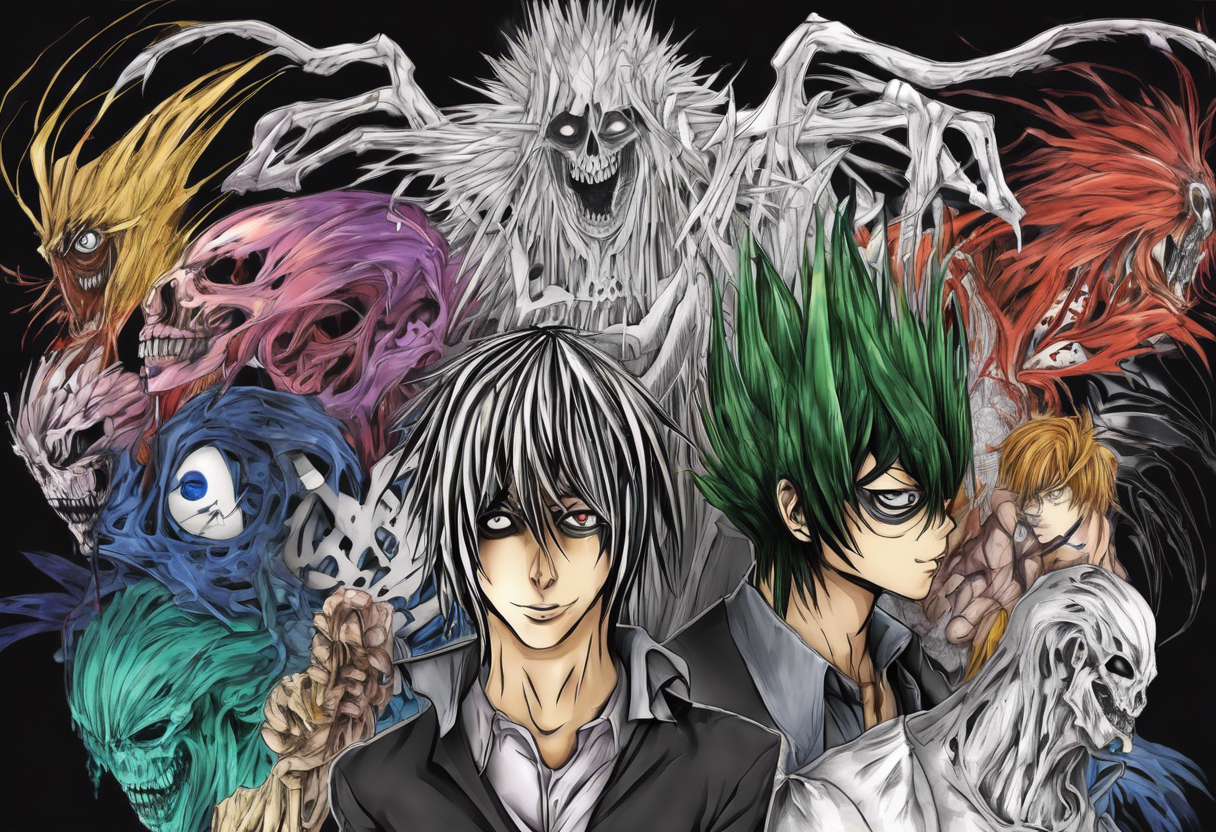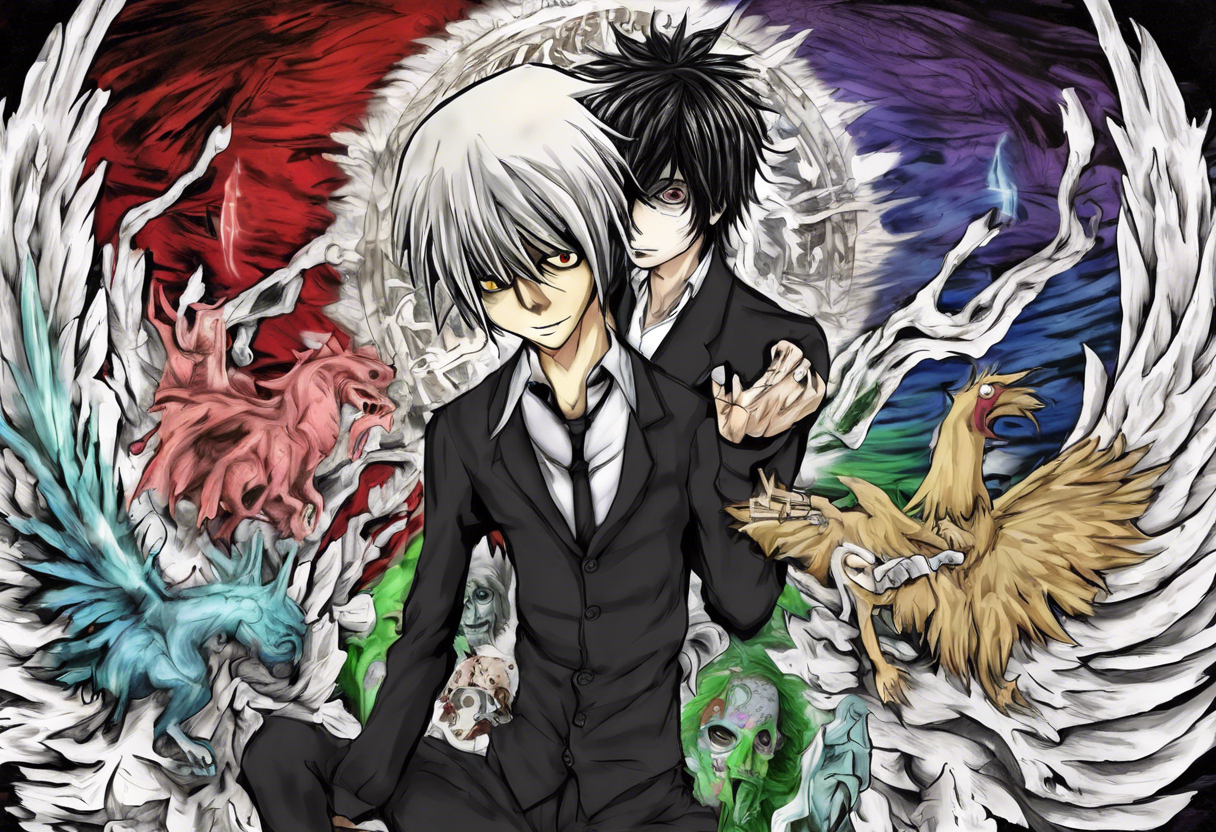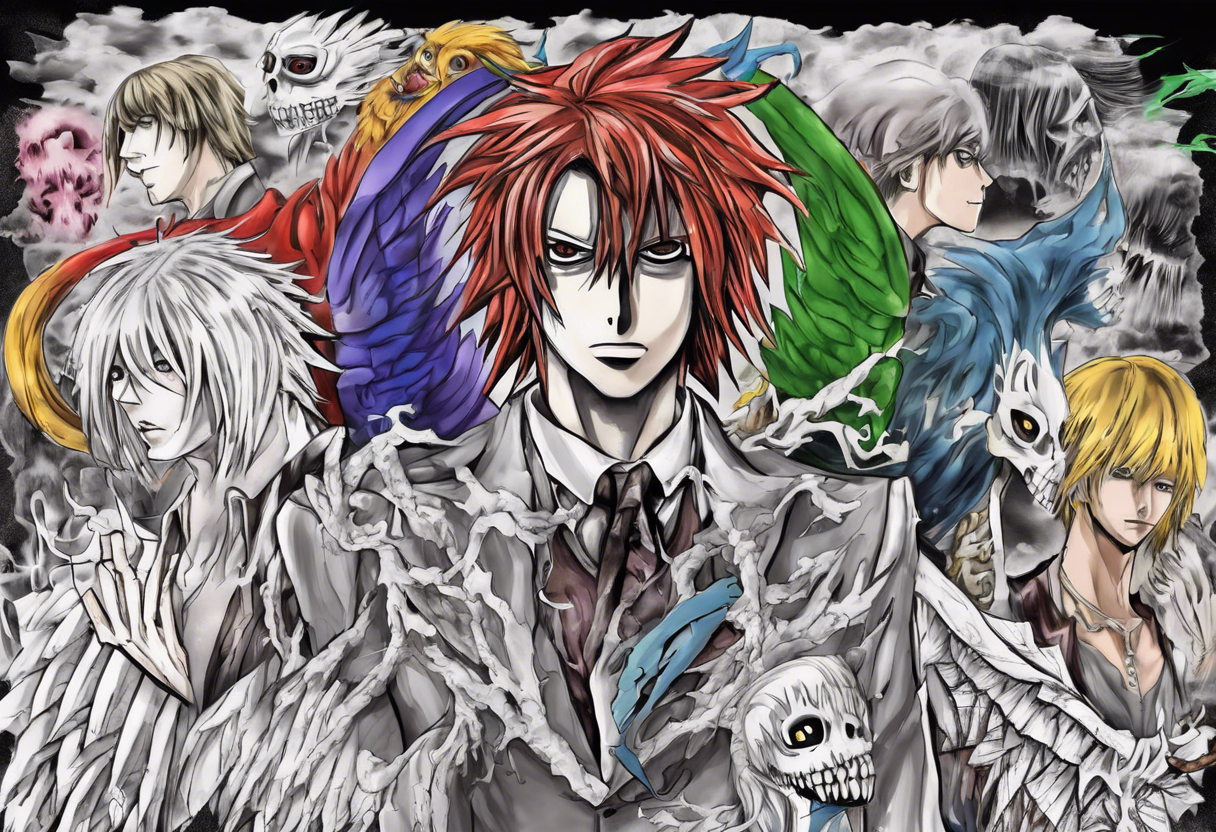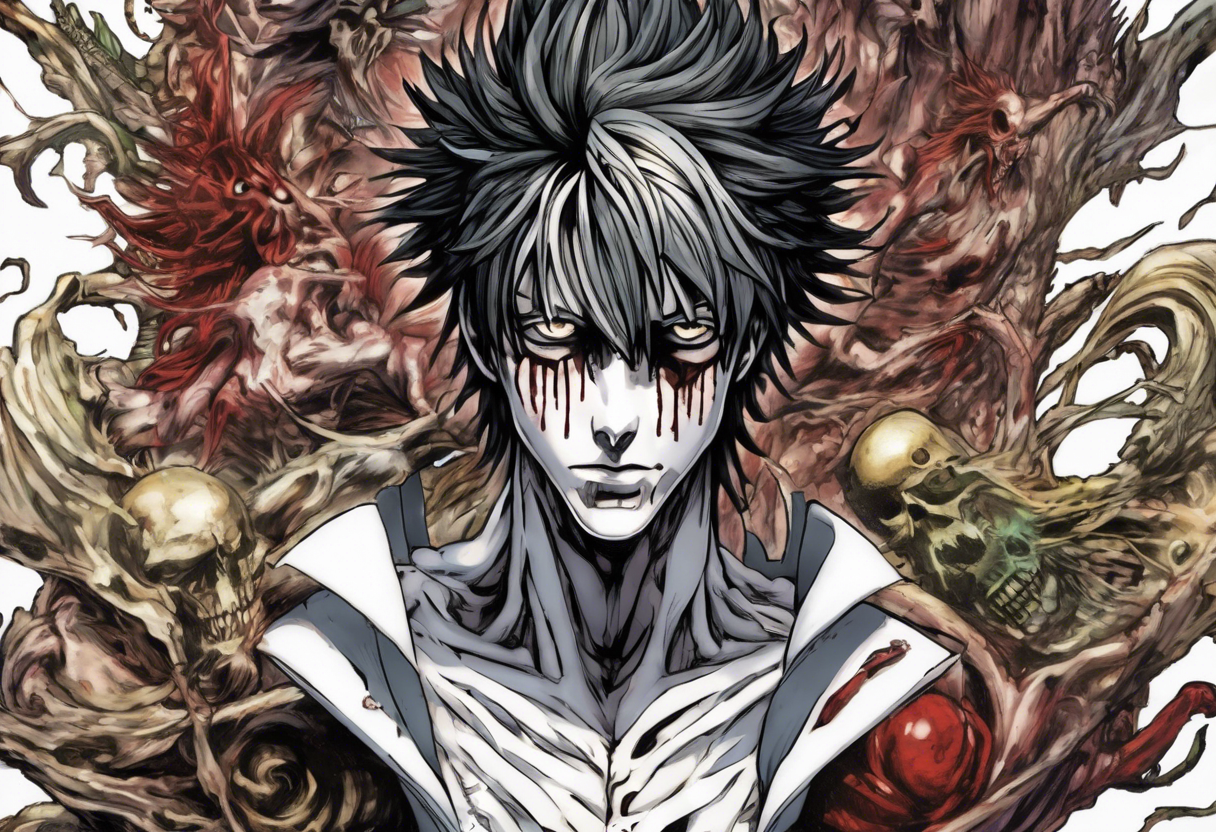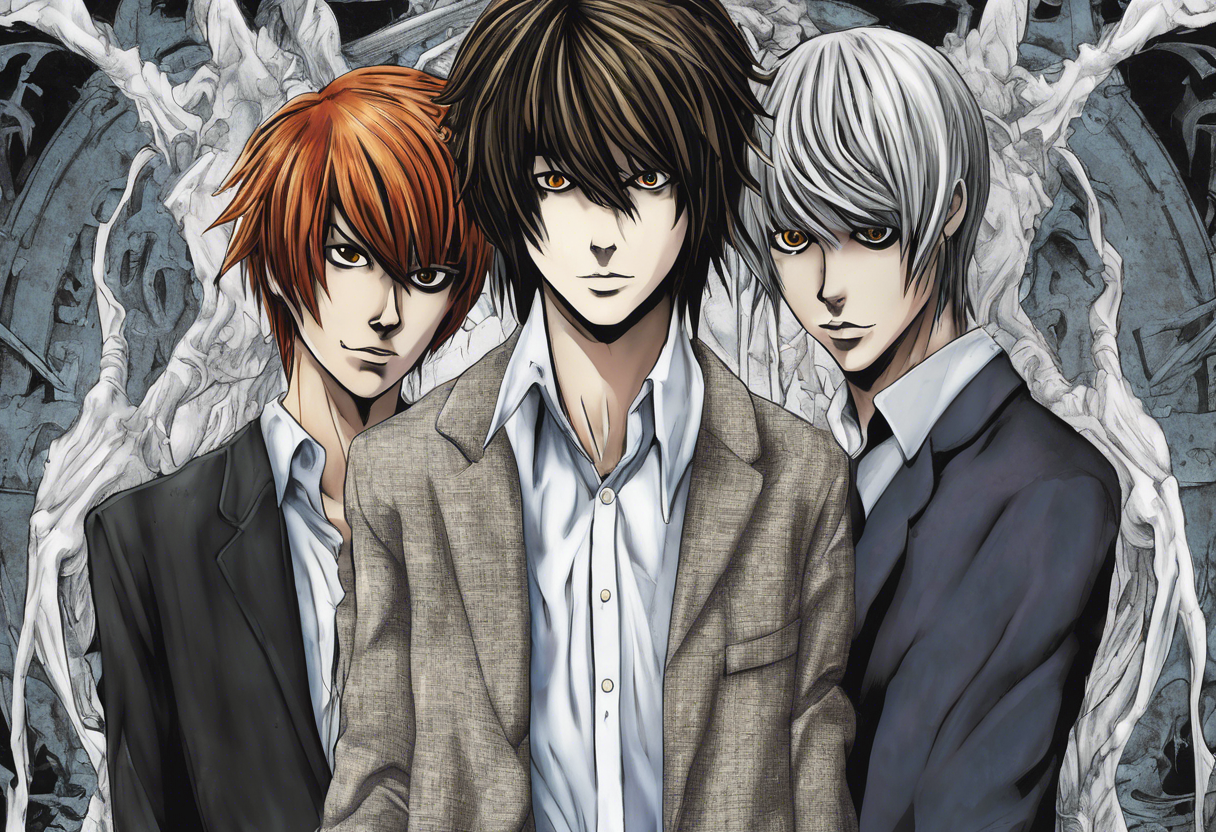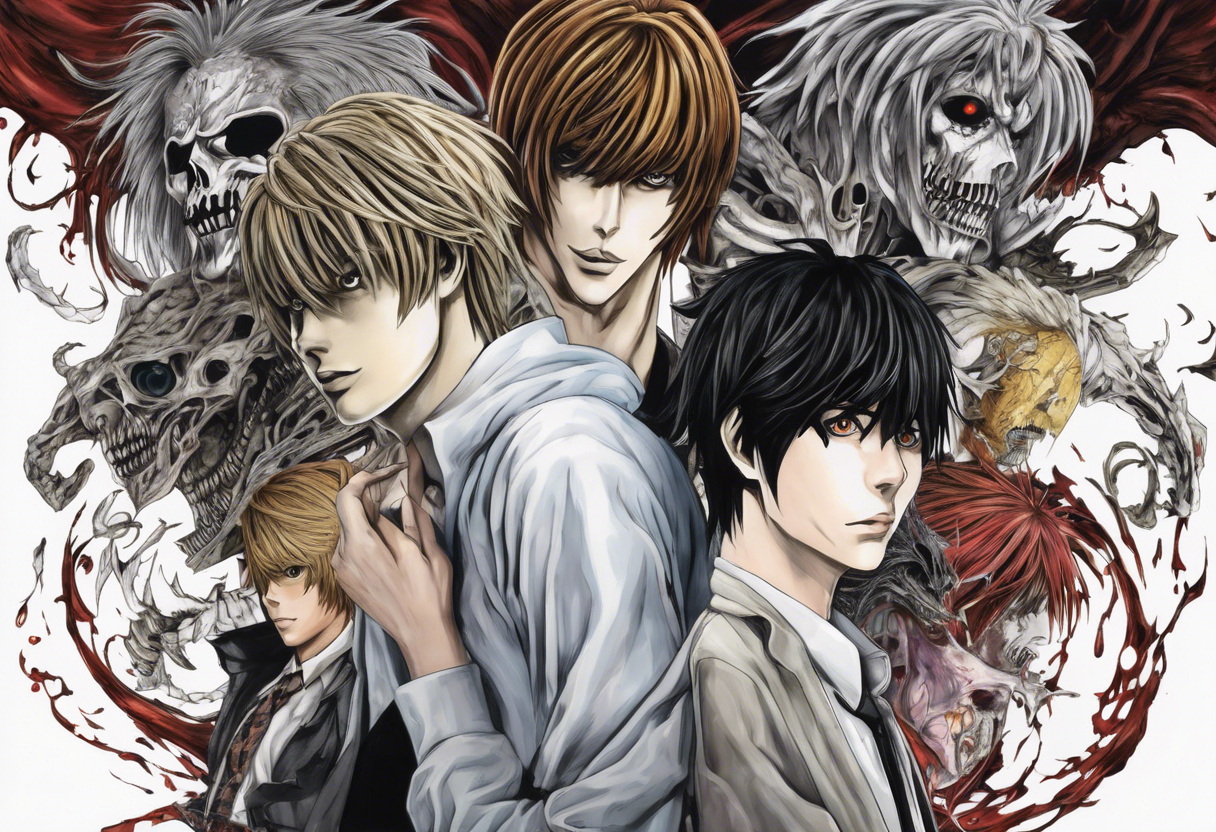Contents
Introduction
"Rebirth," the first episode of the anime series Death Note, is a pivotal entry in the psychological thriller genre that has captivated audiences worldwide. The Death Note series, based on the manga by Tsugumi Ohba and illustrated by Takeshi Obata, was adapted into an anime by Madhouse and directed by Tetsurō Araki.
The production of Death Note began with the manga, which was initially met with skepticism but eventually gained approval for serialization. The success of the manga led to the development of the anime adaptation, which premiered on Nippon TV on October 4, 2006, and concluded on June 27, 2007, with a total of 37 episodes [2].
Key creative figures behind the anime include Tetsurō Araki as the director and Toshiki Inoue as the series organizer. Araki was instrumental in conveying the intriguing aspects of the series, focusing on the thoughts and actions of the main character, Light Yagami. Inoue played a crucial role in adapting the manga’s plot into the anime, ensuring that the chronology and details were carefully managed to maintain the suspense and tension of the original material [2].
What sets Death Note apart is its complex and thought-provoking narrative, which delves into themes of morality, justice, and the consequences of absolute power. The series’ unique blend of psychological suspense, philosophical debates, and supernatural elements has made it a standout in the anime genre.
Plot Summary
"Rebirth" introduces the protagonist, Light Yagami, a genius high school student who stumbles upon a mysterious notebook known as the Death Note. This notebook, which originally belonged to the shinigami (death god) Ryuk, has the power to kill anyone whose name is written in it, provided the writer pictures the person’s face at the time of writing.
The episode begins with Light discovering the Death Note in his schoolyard and initially testing its power by writing the name of a criminal who is about to commit a crime. Convinced of the notebook’s authenticity, Light decides to use it to create a utopian society without crime, envisioning himself as the god of this new world.
As Light starts writing the names of convicted criminals in the Death Note, he is observed by Ryuk, who is bored with the shinigami realm and has dropped the notebook into the human world to entertain himself. Ryuk reveals himself to Light and explains the rules of the Death Note, including the fact that only human names can be written in it, and that the user of the Death Note cannot go to heaven or hell after death [1][3][5].
The episode sets the stage for the complex relationship between Light and Ryuk, as well as Light’s moral dilemma and his descent into a darker persona driven by his desire to reshape the world according to his ideals.
Themes and Symbolism
"Rebirth" and the broader Death Note series explore several central themes that contribute to its depth and resonance.
Morality and Justice
The series delves deeply into the themes of morality and justice, questioning what it means to be just and whether the ends justify the means. Light’s initial intention to rid the world of crime is rooted in a desire for justice, but his methods and the consequences of his actions raise ethical questions about the nature of justice and the morality of taking lives [1][3][5].
Power and Corruption
The Death Note serves as a symbol of absolute power, highlighting how such power can corrupt even those with the best of intentions. Light’s transformation from an idealistic student to a ruthless executor of justice illustrates the corrupting influence of power and the dangers of unchecked authority.
Human Nature
The character of Ryuk, a bored shinigami, serves as a commentary on human nature. Ryuk’s fascination with humans and his decision to drop the Death Note into the human world reflect the series’ exploration of human curiosity, ambition, and the darker aspects of human nature [1][3].
Existentialism and Mortality
The series touches on existential themes, particularly through the concept of the Death Note and its implications for the afterlife. The idea that users of the Death Note are condemned to a limbo state after death raises questions about the meaning of life and the consequences of one’s actions in the mortal world [1][3][5].
Cultural Impact
Death Note has had a significant cultural impact since its release. The series was widely acclaimed in Japan and internationally, marking a significant milestone in the anime industry. It was one of the first well-known Japanese anime properties to be made legally available in the United States for download while it was still airing in Japan, through services like IGN’s Direct2Drive [2].
The series has influenced popular culture, with references in various forms of media, including other anime, films, and literature. Its unique concept and complex characters have made it a favorite among fans of psychological thrillers and anime enthusiasts.
Critical Reception
"Rebirth" and the Death Note series received positive reviews from critics and audiences upon its release. The series was praised for its intricate plot, well-developed characters, and the philosophical debates it sparked. Director Tetsurō Araki’s approach to conveying the suspense and tension of the original manga was particularly commended [2].
However, the series also faced some criticism for its pacing and the moral ambiguity of its protagonist. Some viewers found Light’s actions to be too extreme, while others appreciated the complexity of his character and the ethical dilemmas he faced.
In subsequent years, Death Note has continued to be a subject of analysis and debate, with scholars and fans exploring its themes and symbolism in depth. The series has been recognized for its contribution to the anime genre and its influence on contemporary media.
Legacy
Death Note remains a highly influential and relevant series in the world of anime and beyond. Its exploration of complex themes such as morality, power, and human nature continues to inspire filmmakers, writers, and artists.
The series’ impact on popular culture is evident in its enduring popularity and the numerous adaptations and references it has inspired. The live-action films, including the Japanese and American adaptations, further attest to its global appeal.
In cinematic history, Death Note is remembered for its innovative storytelling, its ability to engage audiences in philosophical debates, and its contribution to the psychological thriller genre. It continues to be a favorite among anime fans and a benchmark for suspenseful storytelling.

